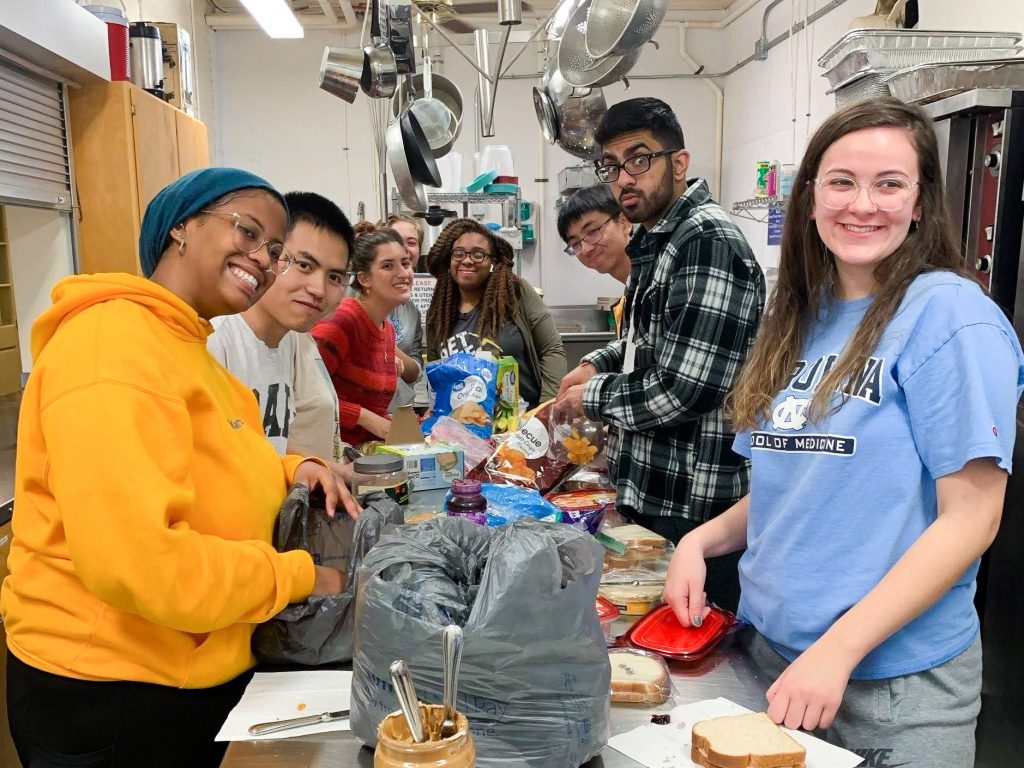Written by Serah Lee ’20
What do the holidays mean for you? Does it mean adhering to old family traditions? Or perhaps, a chance to reconnect with hometown friends? For over 50 Carolina students, the winter holidays meant an opportunity to participate on service trips across North Carolina through the APPLES Service-Learning Alternative Winter Break program.
Choosing from five different focus areas, break leaders created and organized their trips from scratch: from determining where their group would be traveling, to budgeting food, to organizing service events with local community partners, down to selecting each participant that would be joining their team.
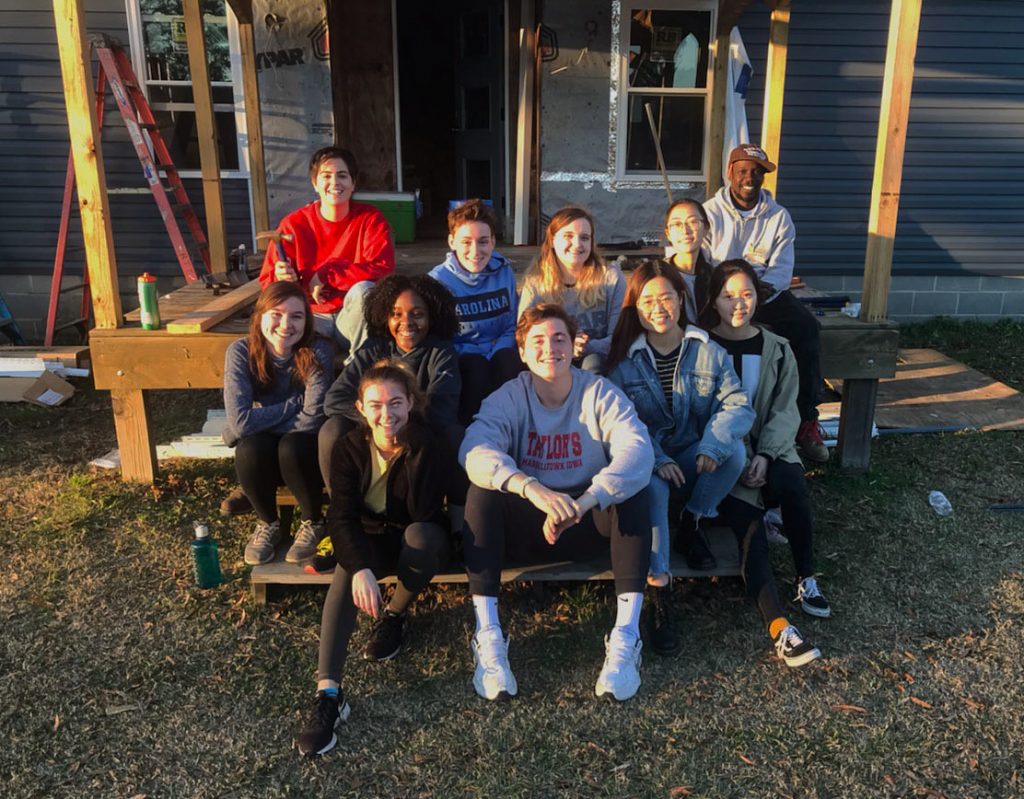
Seniors Isla Farrow and Jacob Henkels co-led a six-day disaster recovery trip in the Wilmington area, where they partnered with community organizations to provide both direct and indirect service to people suffering the aftermath of the many hurricanes that recently damaged the region. Service projects included building homes with the Cape Fear Volunteer Center, working at a diaper bank and working with Habitat for Humanity.
Farrow, who is from eastern North Carolina, said the hurricane damage she witnessed near her home inspired her to participate on this trip. “Because it hit so close to home, I felt like it was my duty to help people from the same region,” she said.
Farrow and Henkels agreed that the most meaningful community organization partnership of their trip was with the Cape Fear Volunteer Center. The team worked side by side with the owner of a construction company, Mackey, whose family members’ homes were devastated by the hurricanes. Mackey gave a lot of insight into his personal experience and shared stories of his family’s road to recovery.
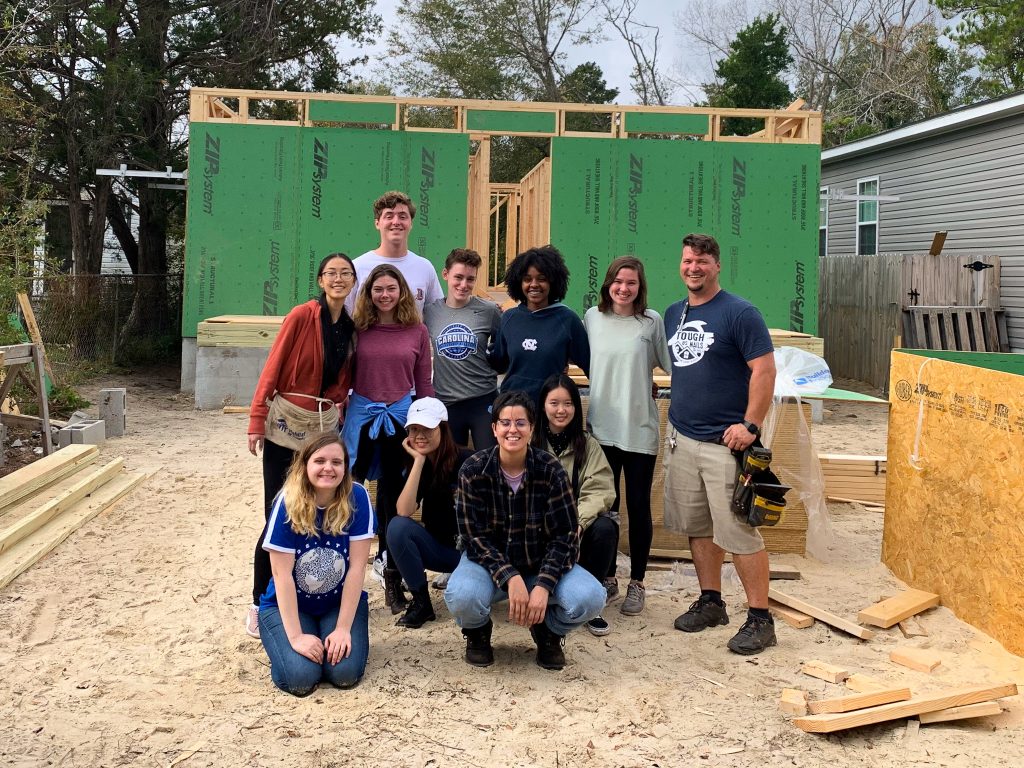
At the end of each emotionally intense day, the co-leaders led reflections that consisted of an open and honest discussion of their day’s events, concerns and ideas.
Henkels said the most meaningful part of his experience is also one of his favorite parts of APPLES in general: “The bonds and friendships you form in your group. It’s just very organic when you spend six days with the same people, in the same house. You grow as friends.”
What began as a group of strangers with varying personalities, backgrounds and identities, transformed into a single, cohesive unit tied together through newly discovered connections and personal experiences.
“Just to see everyone come together…It was building our relationship as a group that meant the most to me,” Farrow said.
It wasn’t all smooth sailing on their trip, however. The co-leaders faced challenges and gained lessons through their responsibility over 10 other students. For example, at one of their construction projects, the pair grew concerned over the lack of safety precautions and decided to step up.
“We had to self-advocate. Even in a space of service, we found that there’s still room where you have to have a boundary with yourself and your group — especially as leaders, you have to recognize those,” explained Henkels.
For Farrow, one of the biggest lessons was recognizing the imbalance of support and resources among different communities affected by natural disasters. Media coverage, location and size of family all factor into the process of recovery.
“As far as service with disaster recovery, the service work is never done,” she said. “It’s always an ongoing process.”
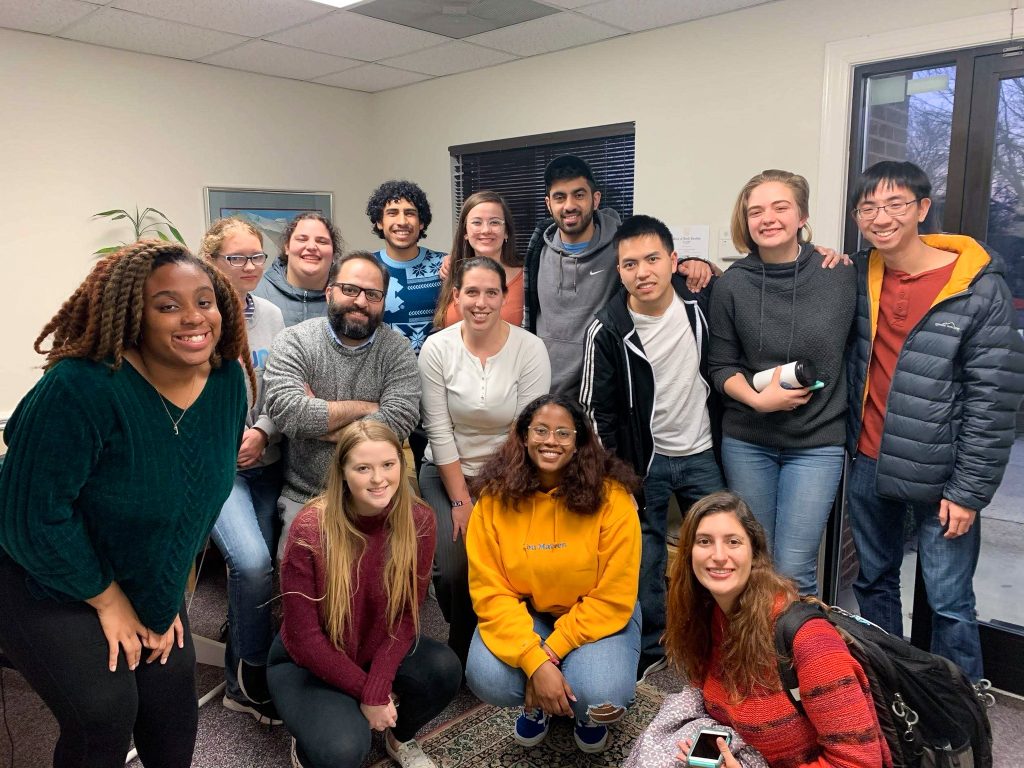
In another region of North Carolina, sophomore Carrie Turner and senior Jose Robles Arvizu led their own trip — this one, supporting refugee communities in Raleigh and Greensboro.
“You see (refugees) on TV and you hear about these horrible crises, but there are refugees quite literally right down the street,” Turner expressed. “This is something that I want people — and myself included — to localize. This is a problem right in front of us. It’s not just a distant problem; it’s something that our neighbors are going through.”
A previous experience on an Alternative Spring Break trip inspired Robles Arvizu to lead a trip of his own. “The topic of refugees is really interesting because I am an immigrant, and I wanted to draw from my past experiences and see if they were applicable to the refugee community and to see what I could learn from them.”
Among other service activities, the team worked with refugee children at the Legacy Crossing Community Center and visited the Faith Action International House to learn about the demographics and laws that affect undocumented individuals. At Faith Action, the co-leaders learned from Reverend David Fraccaro the value of working with a small community: There can be more impact in staying local, especially on personal relationships and building inspiration.
Turner said her main takeaway from the experience is the importance of immigrant and refugee populations: how they contribute not only to the economy, but also to the sense of community in a neighborhood.
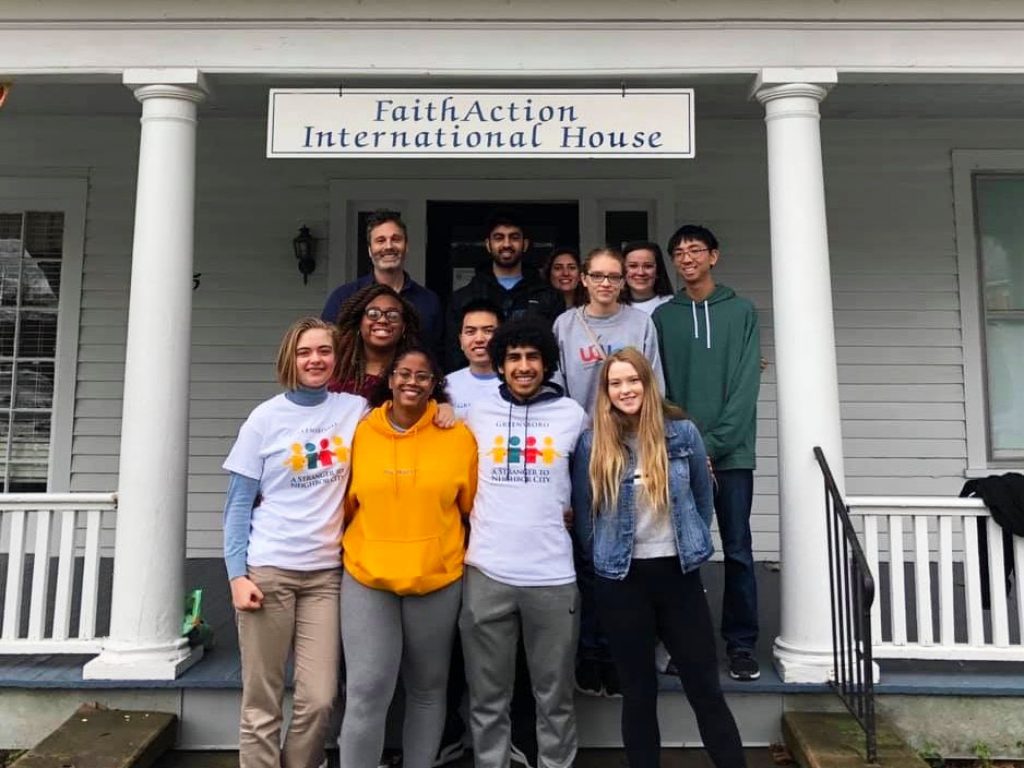
Although the two trips were drastically different in location and focus, the four leaders shared similar highlights from their experiences — especially the value of team-building.
“My goal was to provide a holistic view of service and give back the same experience that my break leaders gave me,” Robles Arvizu said. “Once I saw that the group was coming together and really becoming a cohesive unit, understanding service and having these in-depth conversations about what they could do after this — that, to me, was what made the trip worthwhile.”
Wondering what advice these student leaders would give for students considering an alternative break?
Farrow: “I say do it! I mean, there’s not a lot to prepare for, but it’s a way to meet people outside the normal people you hang with.”
Robles Arvizu: “Do it! Honestly, you don’t know what you’re getting into, but through the class in the spring, I got a whole different view about service.”
Turner: “Expect the unexpected and be comfortable with that. Be open to learning not only about the topic, but vastly different skills as well.”
Henkels: “After doing my first Alternative Winter Break, I would tell people that these APPLES programs and alternative breaks — this is like one of the most hidden gems of the school… It’s such a good opportunity, I just wish more people knew about it.”
